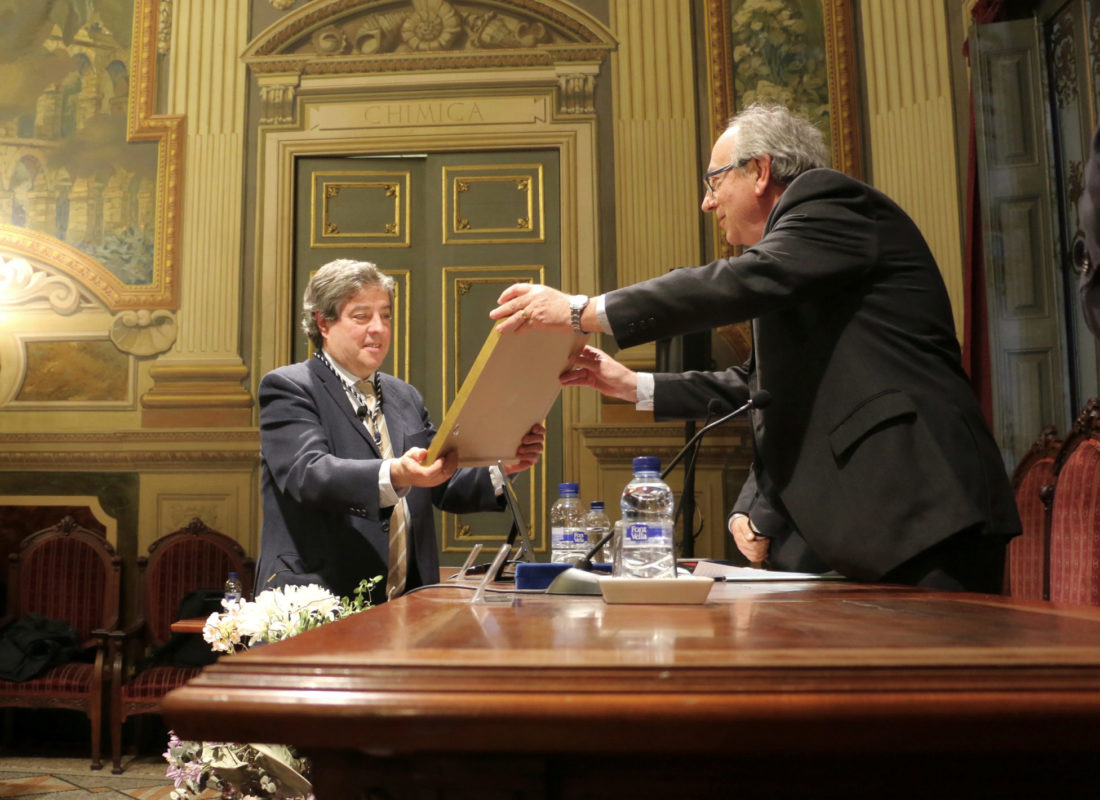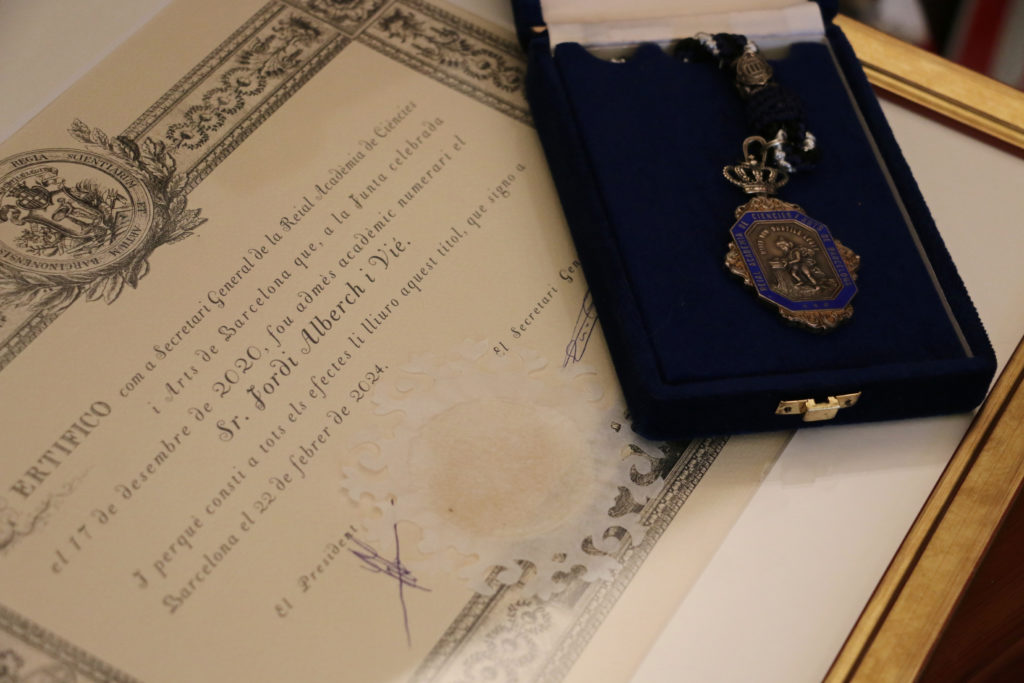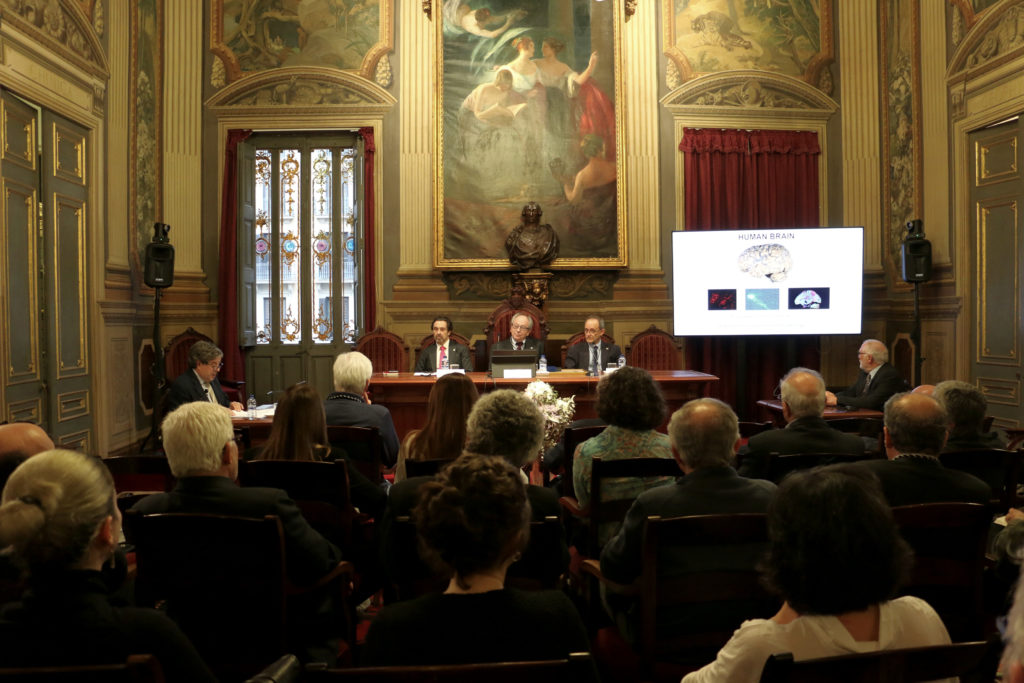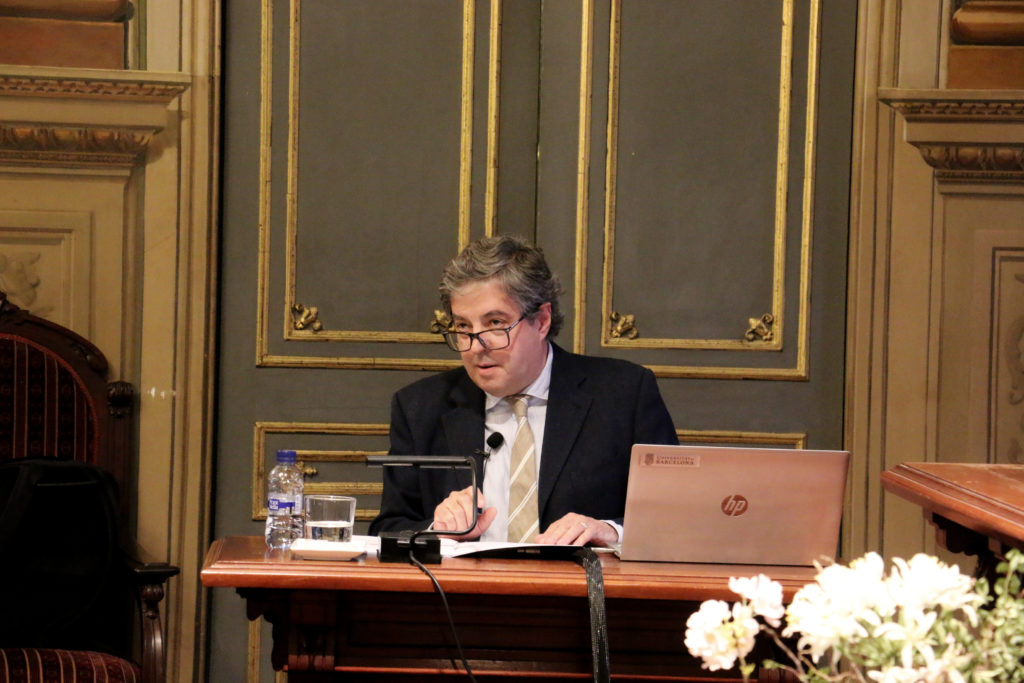
Professor Jordi Alberch i Vié joins the Royal Academy of Arts and Sciences of Barcelona as elected academician
“Human brain: an evolutionary error originates a wonder of nature, but a fragile one”, is the title of the speech given by Jordi Alberch i Vié, professor at the Faculty of Medicine and Health Sciences and director of the Institute of Neurosciences of the University of Barcelona (UBneuro), on the occasion of his appointment as elected academician of the Royal Academy of Arts and Sciences of Barcelona (RACAB). During the ceremony, which took place on 22 February, the new academician was answered by the numerary academician Xavier Bellés, vice-president of RACAB.
The institutional session was presided over by the President of RACAB, Jordi Isern, and the Rector of the UB, Joan Guàrdia. Guàrdia highlighted the important labour at RACAB and its recognition of the scientific values of other academic institutions such as the University of Barcelona.
Jordi Alberch, professor at the Department of Biomedicine, has focused his research career on the study of physiopathology and the treatment of neurodegenerative diseases, specially the study of Huntington’s disease, an activity he has carried out mainly at the UB and other research centres in the United States and in Europe. He was vice-rector for Research, Innovation and Transfer at the UB (2008-2026) and acting rector in 2016.
Alberch, head of research groups at IDIBAPS and CIBERNED, was president of the Spanish Society of Neurosciences (SENC) from 2013 to 2015. Since 2017, he has been the director of UBneuro, an institution that has been twice awarded the María de Maeztu Excellence Unit award by the Spanish Ministry of Science and Innovation. Besides leading several scientific projects and doctoral theses, he has published more than 185 scientific papers in internationally distinguished journals, such as Nature Medicine, Nature Neuroscience, Nature Communications and Brain, among others.
The new member of the Academy, who mentioned, among other experts, the scientific figure of Professor Mercè Durfort — who passed away in 2022 —, focused his speech on the way in which the evolution and development process (Evo-Devo) led us to develop the human brain with a great complexity and great cognitive skills, but, at the same time, with a high degree of fragility (Evo-Devo-Patho). Specifically, the human brain underwent major hypertrophy in a very short evolutionary period. This growth was not proportional in all brain regions equally, but the neocortex was the part that grew the most in the formation of furrows and convolutions.
The alterations in the development patterns were relevant in creating this unique structure with extraordinary cognitive functions. However, to achieve this, we have had to renounce to some neuroprotective and reparative mechanisms. Therefore, Professor Alberch links the physiopathology of some neurodegenerative diseases — such as Alzheimer’s disease, Parkinson’s disease or Huntington’s chorea — to the evolutionary changes that have fostered this excessive growth of the human brain. Therefore, we have a unique brain with unique pathologies.
Multimedia Gallery:






Sorry, the comment form is closed at this time.